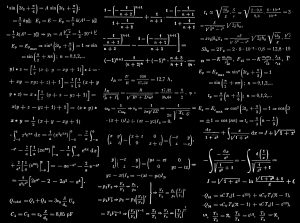Beginner Abacus Worksheets: Unlocking the Power of Math for UKG Students

Are you a parent looking for a fun and effective way to teach math to your UKG child? Do you want to enhance their arithmetic skills while also developing their cognitive abilities? Look no further than beginner abacus worksheets! These engaging resources are designed to make learning math an enjoyable experience for young learners. In this article, we will explore the benefits of using abacus worksheets for beginners and provide you with some useful resources to get started.
Benefits of Using Abacus Worksheets
-
Skill Development: Abacus worksheets focus on improving basic arithmetic skills such as addition, subtraction, multiplication, and division. Regular practice with these worksheets helps students become proficient in mental calculations and enhances their overall numerical abilities.
-
Cognitive Enhancement: One of the key advantages of using abacus worksheets is their ability to engage both hemispheres of the brain. By working with an abacus, children develop better problem-solving skills and enhance their memory retention. Research has shown that abacus training promotes broader brain activation, improving working memory and cognitive flexibility.
-
Visual Learning: The visual aspect of using an abacus aids in understanding numbers and their relationships. As children manipulate beads on the abacus, they develop a deeper understanding of mathematical concepts and gain a more tangible grasp of numbers.
-
Progress Tracking: Many abacus worksheets come with answer keys, allowing parents and teachers to monitor a child’s progress. This feature enables educators to identify areas where a child may need additional support and tailor their instruction accordingly.
-
Customization: Abacus worksheet generators provide the option to customize worksheets based on a child’s skill level. This ensures that the material is neither too easy nor too difficult, providing an optimal learning experience for each learner.
Resources for Abacus Worksheets
Now that we understand the benefits of using abacus worksheets, let’s explore some resources that offer beginner-level worksheets for UKG students:
|
Resource |
Description |
|---|---|
|
Mastermind Abacus Worksheet Generator |
A versatile tool that allows users to create unlimited abacus worksheets tailored to specific arithmetic operations and difficulty levels. Users can customize the number of questions, rows, and digits, making it suitable for various learning needs. |
|
Indian Abacus Worksheet Generator |
Offers a wide range of customizable worksheets for addition, subtraction, multiplication, and division. They provide a subscription service for daily worksheet delivery via WhatsApp, ensuring regular practice opportunities. |
|
Fine Motor Math |
This website provides supplementary worksheets that accompany video lessons, offering a structured learning path where children can practice after watching instructional content, reinforcing their understanding of mathematical concepts. |
|
Alice Green’s Abacus Worksheets |
Focuses on helping beginners master addition and subtraction through daily practice sheets that are skill-level targeted. It offers a step-by-step progression that gradually builds proficiency in these fundamental operations. |
|
Gopal Sidhu’s Practice Sheets |
Provides a variety of practice sheets categorized by difficulty levels. From single-digit sums to multi-digit calculations with or without complements, these worksheets offer ample opportunities for children to hone their skills at their own pace. |
|
SIP Abacus |
A comprehensive program that enhances mental math skills through structured abacus training. It emphasizes resilience and self-confidence, providing resources such as worksheets and assessments to track progress and encourage independent learning. |
Using beginner abacus worksheets and drawing worksheets for UKG is an excellent way to make math enjoyable for UKG students. These resources not only facilitate skill development but also foster a love for mathematics through engaging activities. By leveraging customizable worksheet generators like Mastermind Abacus or Indian Abacus, parents and educators can provide tailored practice that meets the unique learning needs of each child.
Comparison of Abacus Worksheets and Traditional Math Textbooks
When evaluating the effectiveness of abacus worksheets versus traditional math textbooks, several key differences emerge that highlight their unique approaches to teaching mathematics. Each method has its strengths and weaknesses, catering to different learning styles and educational goals.
-
Learning Approach
-
Abacus Worksheets: Abacus worksheets emphasize hands-on learning through visual and tactile engagement. They encourage students to manipulate beads and visualize numbers, enhancing their understanding of mathematical concepts. Research indicates that abacus training promotes broader brain activation, improving working memory and cognitive flexibility.
-
Traditional Math Textbooks: Traditional math textbooks typically rely on rote memorization and procedural learning. They present mathematical concepts in a linear fashion, often emphasizing algorithms and step-by-step problem-solving without much focus on visualization or mental manipulation. This method can lead to a more abstract understanding of math, which may not resonate with all learners.
-
Cognitive Development
-
Abacus Worksheets: Engaging with abacus worksheets has been shown to significantly boost visual-spatial cognitive abilities. Studies reveal that students trained with the abacus outperform their peers in tests measuring visual working memory and mental rotation skills. The physical manipulation of beads fosters an embodied cognitive approach, helping students internalize mathematical concepts through sensory experiences.
-
Traditional Math Textbooks: While traditional math textbooks provide a comprehensive overview of mathematical principles, they may not engage the whole brain in the same way as abacus methods. The focus is primarily on left-brain analytical processing, which may limit the development of visual-spatial skills and creative problem-solving abilities.
-
Engagement and Motivation
-
Abacus Worksheets: Abacus worksheets can be designed to incorporate games and interactive elements, making math practice enjoyable for children. The playful nature of abacus learning can lead to what is described as “happy stress,” where children experience excitement and motivation while learning.
-
Traditional Math Textbooks: Traditional textbooks are often perceived as dry or monotonous, which can lead to disengagement and make it harder for some students to maintain motivation in their studies. The lack of interactive elements limits their ability to captivate young learners.
-
Flexibility and Customization
-
Abacus Worksheets: Abacus worksheets offer the flexibility to customize exercises based on a child’s current skill level. This adaptability helps address specific areas where a student may need improvement, ensuring targeted practice opportunities.
-
Traditional Math Textbooks: While traditional math textbooks provide a structured curriculum, they are less flexible in terms of content delivery. Students may find themselves either overwhelmed by advanced topics or bored by material that does not challenge them enough.
Application of Skills
-
Abacus Worksheets: Abacus worksheets often focus on practical applications of math skills, helping students see the relevance of what they are learning in real-life scenarios. This connection can enhance retention and understanding.
-
Traditional Math Textbooks: Although traditional math textbooks include word problems and real-world applications, the emphasis is often on theoretical understanding rather than practical application, which may not resonate with all learners.
In summary, both abacus worksheets and traditional math textbooks have distinct advantages in teaching mathematics. Abacus worksheets offer a hands-on, engaging approach that enhances cognitive skills through visualization and manipulation, making them particularly effective for young learners. In contrast, traditional math textbooks provide a structured framework for understanding mathematical principles but may lack the engagement factor necessary for some students. By combining the strengths of both methods, parents and educators can create a comprehensive math education strategy that caters to diverse learning styles and needs.
Summing Up
As we conclude our exploration of beginner abacus worksheets, let us reflect on the power they hold in unlocking the potential of math for UKG students. These worksheets not only develop essential arithmetic skills but also enhance cognitive abilities such as concentration, memory, and problem-solving. By leveraging customizable worksheet generators and engaging resources, parents and educators can provide a fun and effective learning experience for their children.
If you’re looking for a proven program that incorporates how to use an abacus, SIP Abacus offers world-class skill development programs for children aged 6-12 years. Their curriculum is designed to unlock the mental potential of children through fun learning methodologies. SIP Abacus uses the abacus tool and visualization techniques to teach mental math skills, develop strong arithmetic abilities and improve overall cognitive development. Studies have shown that children who complete the SIP Abacus program perform significantly better in math and reading at school, often surpassing their peers by several years within just two years of joining. With small class sizes and interactive lesson plans, SIP Abacus provides an engaging and effective learning environment for young learners.
So why wait? Embrace the power of beginner abacus worksheets and give your child the gift of mathematical proficiency and cognitive growth today!



